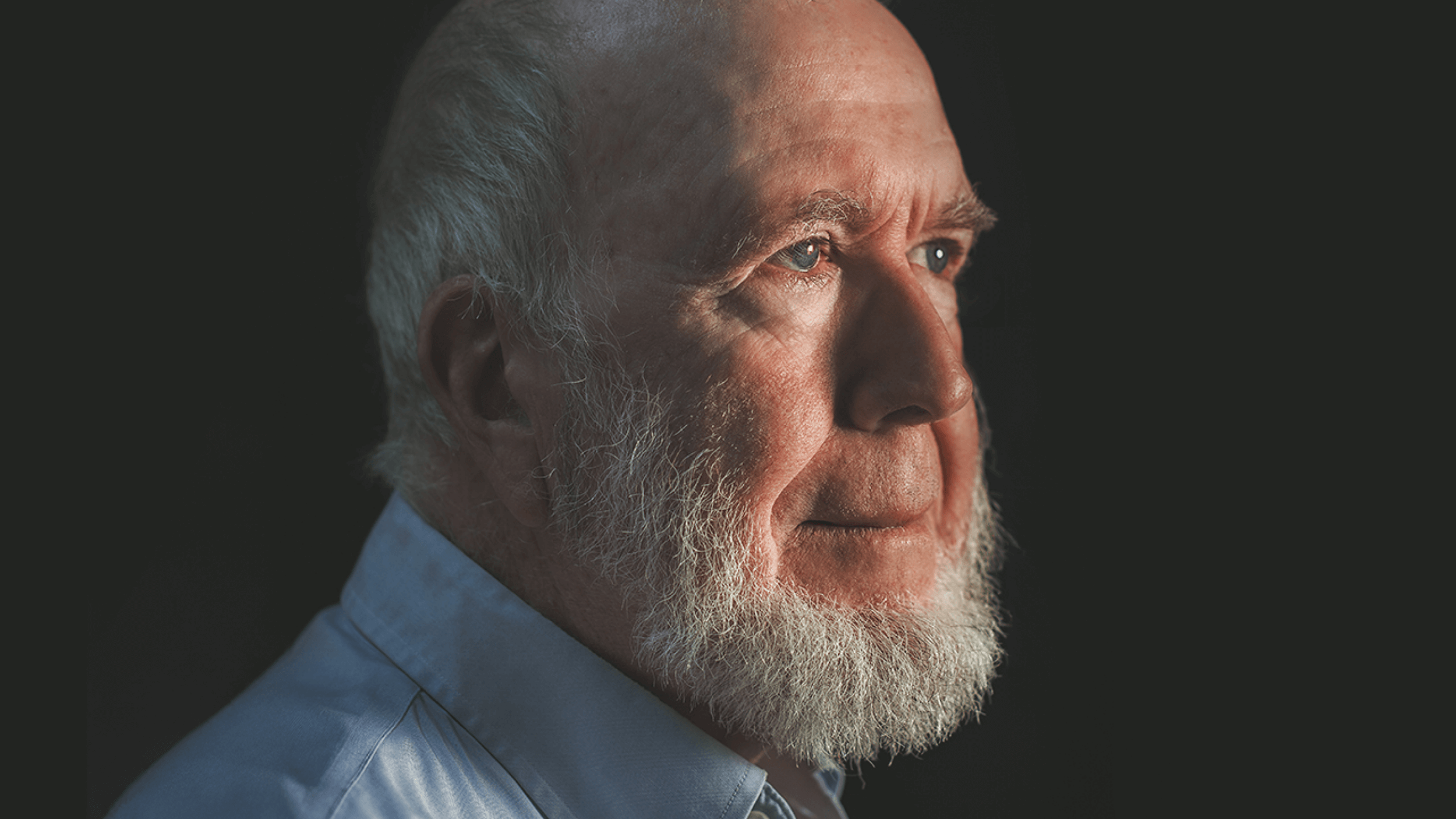Tactical leadership: The “Navy SEALs” of Airbnb

- Dave Stephenson spent nearly two decades at Amazon before joining Airbnb.
- Jeff Bezos and Brian Chesky, he notes, both think about the long term while also executing well in the short term — which is “incredibly powerful.”
- At Airbnb “it’s not just about having a navy, it’s about the Navy SEALs — a small group of elite people that are experts in their areas.”
Dave Stephenson — Chief Business Officer at Airbnb — has made a habit of staying ahead of the curve. After shelving early plans to become an architect, and then training as an engineer, he joined Amazon when it was “this little bookstore in Seattle” before moving to his current employer where, as CFO, he was instrumental in navigating through the pandemic via a record-breaking IPO. Under his meticulous guidance, Airbnb transitioned from a divisional to a functional framework and implemented the Live and Work Anywhere program, which continues to drive high scores in employee satisfaction.
Buried in the details of how he has managed to succeed, consistently, across a range of tasks are valuable lessons in leadership — both his own philosophy and that of the big-name bosses, Jeff Bezos and Brian Chesky, he has observed at close quarters — not to mention innovation, company culture, and team dynamics. Big Think sought him out for a wide-ranging and informative chat that spans the “founder mode” debate, the AI landscape, metaphorical Navy SEALs, the naivety of “return,” and much more.
Big Think: How did you arrive at your current role as CBO at Airbnb?
Stephenson: At one point I really wanted to be an architect. And then as I started studying at school, I gravitated a little bit more into more hardcore engineering, but then also found within engineering, I really liked the people and process aspects of engineering [and] I’ve always been curious about then how finance impacts the bigger world. I was fortunate to join Amazon in the early days — it’s not just about the numbers, you’re actually part of the operations, which has been something I’ve been able to bring to Airbnb. We are building something long-term for the future. I feel like I’m at an amazing place where we’re building and designing something for the future. So maybe it kind of comes full circle a bit.

Big Think: Airbnb CEO Brian Chesky highlighted the focus on “long term growth” when you became CBO in 2023 — how do you balance short-term necessities with long-term strategy?
Stephenson: I think you have to always keep two timescales in mind at any given point in time. If you’re only ever focused on the short term, you might get results today, but at the expense of the future. And if you’re only thinking about the future, you may not have the resources and capability to get to the other side. That is the challenge. One of the things I love about working in founder-led companies with Brian [Chesky] at Airbnb and Jeff [Bezos] at Amazon, they definitely have this long-term view in mind. They plan to run or be part of those companies for a very, very long period of time, but they’re also very tactical, like, okay, what do we need to do today to demonstrate success?
Big Think: How does that play into the “founder mode” debate — the level and style of founder involvement over time?
Stephenson: What I’ve seen is the success of founders staying very involved for a very long period of time. And being involved doesn’t mean that they’re micromanaging. It means that they are in the details sufficiently to know that the work is being done in the right way for the long term. Both Jeff and Brian have different audit mechanisms, different ways in which they stay involved, but thinking about the long term — while also making sure we’re executing well in the short term — is incredibly powerful. If you look at companies where leaders abdicate the leadership down and are not in those details, I think those companies are not as successful in the longer run.
“What I’ve seen is the success of founders staying very involved for a very long period of time. And being involved doesn’t mean that they’re micromanaging.”
Dave Stephenson
Big Think: How have you evolved in your own leadership style?
Stephenson: You want to empower your team to do their best work, but that doesn’t mean that you aren’t in those details with them doing that work alongside them. And one of the ways that we’re trying to approach it at Airbnb is that it’s not just about having a navy, it’s about the Navy SEALs. It’s about a small group of elite people that are experts in their areas. And when you direct those elite people, you don’t need to be in every single element of the details, but you should be alongside them. I think that’s just a powerful way to think about what we want to accomplish: a small group of elite people being directed in a collaborative way.
Big Think: How are you tackling the integration of AI at the functional, corporate level — and have you seen some successes?
Stephenson: AI is at the same time both the most over-hyped technology in recent memory, but also maybe the most under-hyped — it goes back to that short term, long term idea. I think it’s under-hyped in the long term and over-hyped in the short term. And so I think the best companies are the ones that are being very thoughtful about taking action now with AI, but also knowing that it may take a long time.
Clearly our engineers are more efficient and more effective at deploying code and developing tools due to the use of AI. And I think that will continue to be transformational. We’re making great strides with our customer support operations as well. And then we are improving the guest and host experience through AI, through machine learning, through things like ranking algorithms and improved merchandising.
Where it may take longer is just how do we actually develop the service itself? How do you interact via the phone or via the web or via voice or other ways through AI to plan better trips, better travel? And I think that is the harder problem to get that interface right. But I think when we figure that out, I think that will be transformational.
Big Think: You oversee Airbnb’s Live and Work Anywhere company program — are the days of the traditional 9-to-5 office over?
Stephenson: You need to have a more flexible program to attract and retain some of the best people in the world. And that’s what we’ve created with Live and Work Anywhere. We’re very intentional about getting people together when it matters — because it does matter — but then also giving people flexibility to be elsewhere. It’s harder in some ways because you have to be very intentional about how you organize the work. We’ve created a function, we call it “ground control,” which actually helps facilitate work in person. I’m not saying every company can do it, but if you’re like Airbnb, which is small elite experts working on design-oriented activities, I think it can work really well and I’m very proud of it. Anyone that thinks that it’s going to go “return” is just naive because work has changed over the decades and will continue to change.
“Anyone that thinks that it’s going to go “return” is just naive because work has changed over the decades and will continue to change.”
Dave Stephenson
Big Think: Do you have personal heroes who have inspired you and informed your business philosophy?
Stephenson: Elon Musk is a very non-traditional leader. I don’t necessarily agree with all the ways in which he leads, but I think it is inspiring to think through and understand, maybe, ways not to lead. I think Winston Churchill was an amazing leader — this strong sense of right and wrong and the direction we need to go, and having the tenacity and the fortitude to drive through with that. Tenacity is a trait that I value a great deal in myself and in my teams. I think if you’re going to solve hard problems, you need to persevere through those challenges and overcome them, and if you give up easily, I don’t think you’re going to accomplish anything really big and important.
Big Think: Are there any frameworks you’ve found useful in terms of the structure of your work?
Stephenson: I think I benefit from having a combination of people together. If I can bring rigor and discipline and methodical effort along with somebody that’s incredibly creative along with somebody that’s also incredibly empathetic, you have this combination of complimentary skills in one place and one team. If you only have creatives, you’re not going to necessarily deliver the best thing. And if you only have people that can drive the business, you’re not going to be successful either. I think you need some combination of both, and that combination may differ by company, but I think it’s really important to have that diversity of style and thought.
Big Think: The Paris Olympics was a big success for Airbnb — what were some of the elements behind that?
Stephenson: The Paris Olympics was probably the single biggest event in Airbnb’s history. We had over 400,000 guests staying in Airbnbs around the city. The Olympics really are the ultimate hosted event, right? A city is hosting people from all around the world for these games, and so it embodies so much of the way in which Airbnb thinks about hosting others and being local and appreciating the culture that you’re in. So I’m super excited about the LA Olympics [in 2028].
We’re going to be doing more events all around the world. The Taylor Swift effect was real and the bump that we had in each city where Taylor Swift was doing a concert was material. Or when we had the [solar] eclipse — what was amazing is maybe historically people would’ve only been able to go to cities where they could stay in a hotel here. They were staying in rural towns just along the path and people opened up their homes as Airbnbs and we had a material impact on the businesses and communities along the path. It was really, really impactful.





